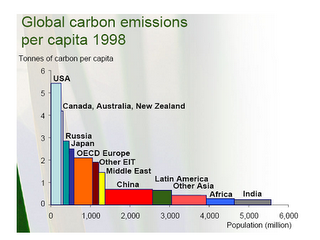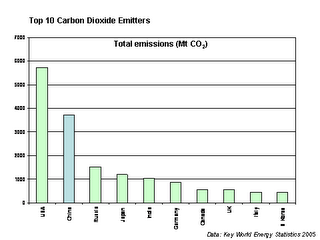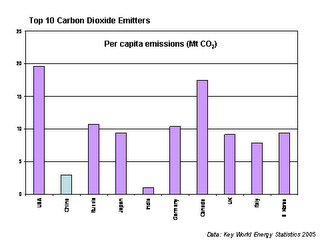or go to this link: http://stopglobalwarming.org/sgw_marcher.asp?468891 and sign up. After you sign up – go to “Petition your Mayor” on the front page, and make your voice heard so we can start making some real progress. (by the way, it is unfortunately too late to “stop global warming” – but we really need to “stop emitting greenhouse gases”, so as to minimize global warming, and thus minimize the great disruption that climate change will bring to our global society).
You can also go to this website to voice your support for such a move, and find some resources on how to push your city and whatever organizations you’re involved with to do the same:
A bit more about
The Protocol went into effect in Feb 2005 after Russia signed on, and the first “commitment period” for developed countries to meet their target runs from ’08-’12. During that time countries agree to reduce their emissions, on average, to about 5% below 1990 levels (a very modest beginning). The
- I have faith in American business to step up to a clear challenge like this, and expect it to drive innovation and economic opportunity, instead of whining that it’s not their responsibility. In addition to the potential development in renewable energy, energy service companies and the like – the financial sector will welcome the move: the EU emissions trading scheme (which is up and running in preparation for Kyoto) has grown from €377 million in 2004 to €9.4 ($11.3) billion in 2005 and estimates for ’06 are upwards of €30 billion.
- Most developing countries’ emissions (esp Africa) are negligible compared to the industrialized world

– particularly the
1) this means in real terms, the US will need to cut more to achieve the same percentage cuts as other industrialized countries – however, the targets reflect this with the US target at 7% below ’90 levels, compared to the EU and many eastern European countries at 8%)
2) we’re probably not worried about the fact that “developing” countries don’t have caps with the exception of
- Countries with weaker economies than ours have stepped up to challenge, recognizing that any negative impacts on the economy (again, I think the opposite will be the case) will pale in comparison to the detrimental impacts of climate change – as is becoming increasingly clear, we’re already feeling these impacts, and we’ll continue to feel them more acutely – right now all we can do is minimize the pain by acting as quickly as possible.
I think this is a great opportunity to enact real change by taking advantage of the power of free markets – this type of scheme that Kyoto embodies is a crucial step in adapting our economic system to the realities of the time – moving us closer to a true free-market economy, internalizing some externalities and enabling closer-to-perfect information. Stay going.


1 comment:
Natural Capatilism can(and must) work, infact here in the US I think the business world is years ahead of the policy makers.
However, I fear the 'technology will save us' arguments ability to allow the average citizen to remain complacent. We ALL must incorporate ways to increase our sustainability and achieve permaculture.
Post a Comment